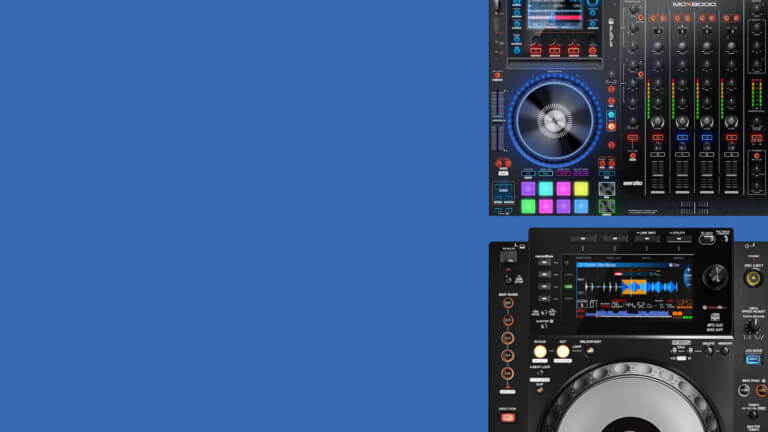Just like vinyl vs CDJ, there is also the ongoing CDJs vs DJ controllers debate! I personally don’t think that will ever end or find a natural conclusion.
If you’re a DJ today, you know that technology plays a huge part in your performing experience. From how you mix a track, to the different effects you use, to how the music is even played from your speakers, technology is the single-most-important culprit behind a DJ’s playing of music. Initially, DJs invented and used the turntable. There, they were able to make incredibly rich sound mixes while simultaneously being required to carry and move heavy pieces of equipment from gig spot to gig spot.
As technology improved, DJs then began to use compact discs (also known as CDs) with a new device known as a CDJ. These were considered to be easier and more accessible forms of turntables, leveraging much of today’s technology with much of the established DJ’s sound quality. The only problem was that you still needed CDs if you wanted your experience to be as good as possible.
Now, the most recent and popular method of DJing has come in the form of the DJ controller. DJ controllers are incredibly powerful and useful products that take much from the CDJ while going even further into the digital space. Now, you can use a controller with only a laptop or a USB drive, making it one of the most mobile options available.
And, while we have already discussed the differences between the OG turntables with the CDJs in the past, what about the CDJ and its child, the DJ controller? How do these two devices compare and contrast with one another? Is one intrinsically better than the other?
In this overview guide, we’ll get into the CDJ as well as the DJ controller to see how they stack up with one another, as well as what are the pros and cons to either music mixing device.
The CDJ Explained
First launched back in the mid-90s (1994), CDJs have been a mainstay in the DJ music space for quite a while. And for good reason too! These devices are used in many clubs and venues all across the world and are widely received as useful, viable tools for performing track mixes.
The CDJ is, to many, a step up from the OG turntable, being able to play and mix songs using a variety of different effects and features. While they were once strictly relegated to CD use, over the years, technology has advanced enough so that modern CDJs can be linked up with USB sticks or connected to a computer. This makes them even easier to get going since you can keep all of your music on a simple thumb drive if you want to perform.
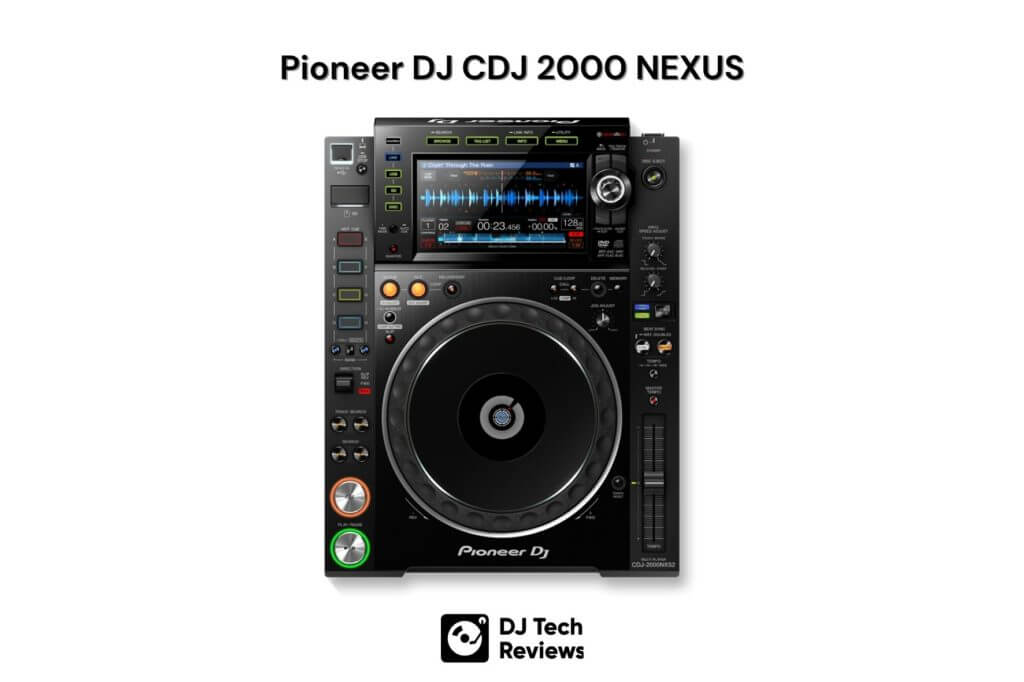
Pros & Cons Of The CDJ
Pros
Doesn’t Require Laptop Use
One of the cooler aspects of the CDJ, that isn’t seen nearly as much along the DJ controllers, is that the CDJ doesn’t require a computer or laptop if they want to play music. This is one of the major differences between the two devices, as the DJ controller almost always needs a laptop to do just about anything.
On the other hand, while you certainly “can” use a laptop with your CDJ, you aren’t forced to. These devices are often set up by DJ booths in clubs and other venues precisely because the CDJs have a level of freedom not normally observed by the DJ controller.
More Personalization With The Audience
Because CDJs aren’t tied to a laptop screen, DJs can have a much more direct and personalized connection with their audience. This means they can better gauge how the crowd is responding to their works and make short-cut changes that will keep everyone enjoying themselves.
This is much more difficult for DJs using controllers, as their attention is already so heavily tied to monitoring things on their laptop and the controller itself, with very little chance that they can focus on reading the room and seeing how everyone else is responding.
Just As Versatile As The DJ Controller
One of the biggest detractions for the turntable when compared to the CDJ or the DJ Controller is the fact that it’s just not as versatile as either more modern devices. On the flip side, the CDJ is a pretty useful device exactly for that reason. Simply put, CDJs can perform virtually just as many tricks and effects as a dedicated DJ Controller while not needing anything other than a USB stick.
Meanwhile, left on its own, a controller is relegated to the few features it’s got logged into its hardware, everything else is locked onto its respective DJ software.
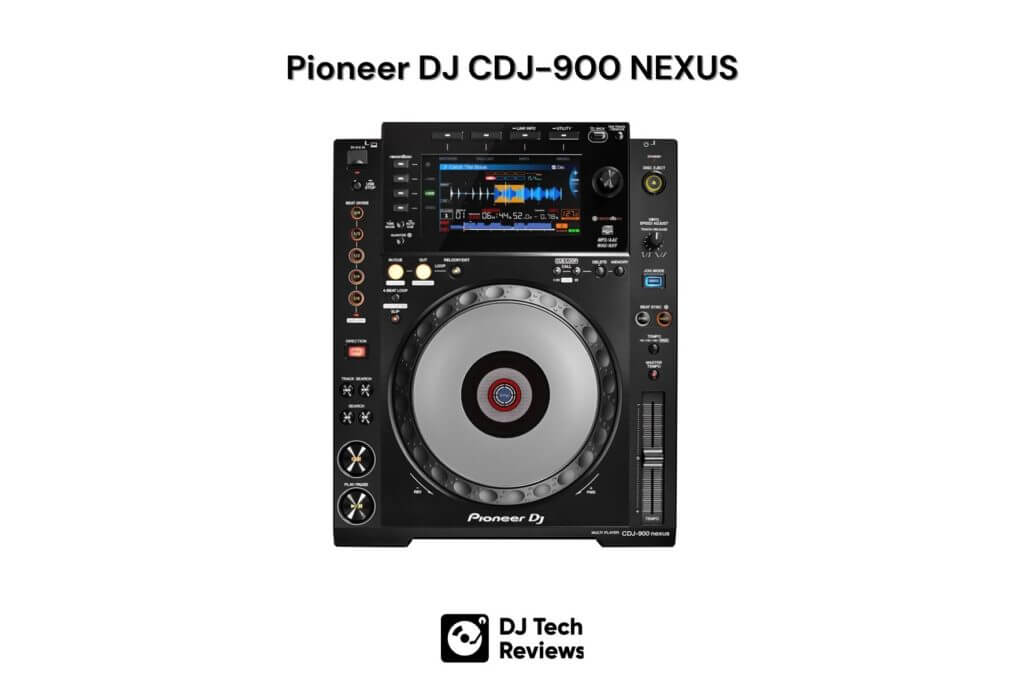
Cons
Can Be Very Expensive
One point of consideration is that CDJs, despite their seemingly inexpensive nature, can be incredibly costly. Generally, if you want something of quality, you’re going to be spending about as much as you’d drop on a good turntable system – if not more.
This is further exacerbated when you consider the fact that most setups are going to need a pair of CDJs along with a mixer if they want to truly run right. And when you consider that just one quality CDJ can cost upwards of $1,000… it’s no surprise people think long and before making that type of investment.
Must Prepare For Every Event Beforehand
While using a laptop and DJ software may be an annoyance, it may be a better alternative to what the CDJ requires from you. No, you won’t have to deal with the frustration that comes from constantly dealing with a separate laptop, but you will have to prepare all of your songs in advance.
This doesn’t just mean throwing a bunch of songs onto a USB and calling it a day. You’ll need to ideally have these set up prior in a playlist that is ideal for the situation as well as ordered in a way that works for mixing. If you don’t, it can be easy to accidentally find yourself playing a song you didn’t mean to or mixing a song that showed up prematurely, potentially ruining your entire performance.
The DJ Controller Explained
The DJ controller is the newest kid to show up on the block and has quite the impressive list of accomplishments to its name. Essentially, whereas the turntable and CDJ are singular pieces of music equipment, with only one inherent function, DJ controllers operate as a sort of standalone function. They can act as CDJs, turntables, and mixers all at the same time.
This, however, is done largely thanks to the help of a functioning laptop (or computer) and running DJ software. This combo helps DJs mix their music and play around with different effects live without much need for pre-planning or preparation. In addition, DJ controllers are much lighter in weight when compared to controllers as well as being cheaper and easier to use and transport from one venue to another.
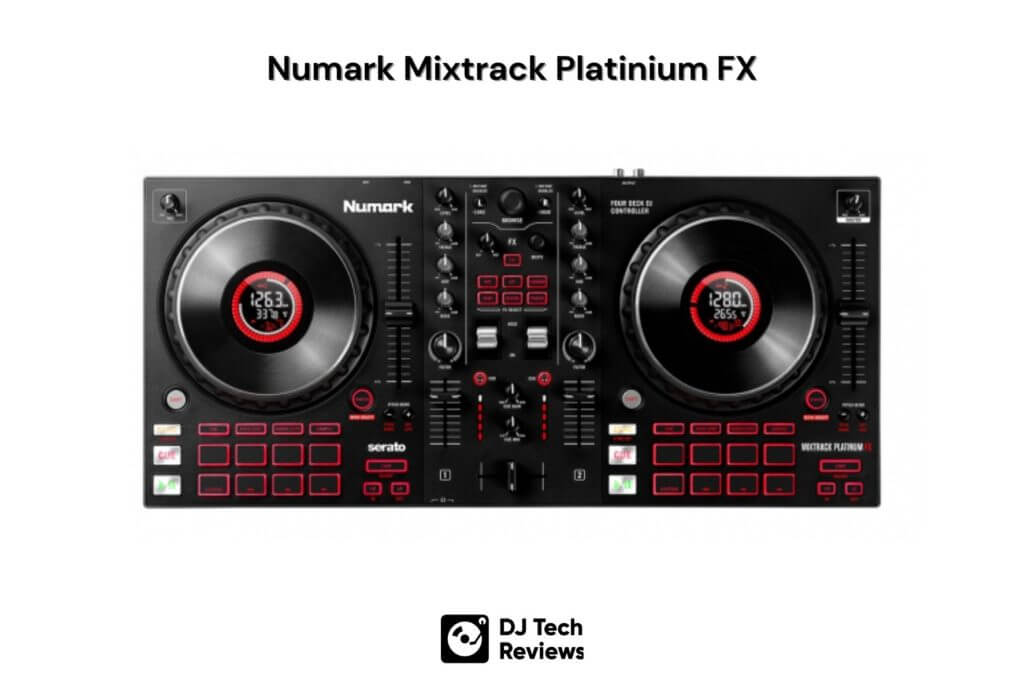
All-In-One Functionality
The biggest selling point for using a DJ controller over either the CDJ or the turntable is that the DJ controller makes the turntable and CDJ somewhat redundant. Unlike the other two options (which can do one thing and one thing only), the DJ controller comes with a variety of in-built features.
Like the turntable, they’ve got a set of jogwheels for each deck; they’ve got a mixer built into the system itself, meaning you won’t need to get a separate to tie to your own; and they have a variety of different knobs, buttons, and abilities that often make it easy to adjust certain features, like the CDJ.
Simply put, if you’ve got a controller, you do kind of have everything else all rolled into one.
Pros & Cons Of The DJ Controller
Pros
Entirely Software-Based
One of the biggest pros and cons of the DJ controller is the fact that it is almost entirely based on its software use on the computer. And, while there are a lot of cons that can go with the software-based approach (we’ll get to them soon), there are also a lot of unsung pros that come with that aspect of the controller as well.
For one, the biggest perk is that beginners are much more easily able to jump into using a controller than they would be learning all the different aspects of a CDJ. By being able to just start playing with a controller without needing to go over a ton of intricate aspects, you have a much higher level of confidence when performing, something CDJ owners may not have as much of when starting.
Very Affordable
Even the most expensive controllers pale in comparison to what most CDJs cost, especially when purchased as a pair. Put simply, all you need to play with a controller is a laptop and a couple of hundred dollars. What’s more, there are a ton of low-cost controllers that are great for those just starting, meaning that you can get better and more advanced controllers over time as you are improving.
New Features
One thing that is unique to the controllers, more so than either the turntable or the CDJ, is that the controller is rife with cool features and effects. Whereas the turntable has next to none and the CDJ has about a handful, because controllers are tied to digital software, any new update can bring on countless additional features directly to the device.
While the number of features can vary based on the quality of the controller itself, at the higher tiers, you can expect some truly incredible things from your controller, giving even the most expensive CDJs a run for their money.
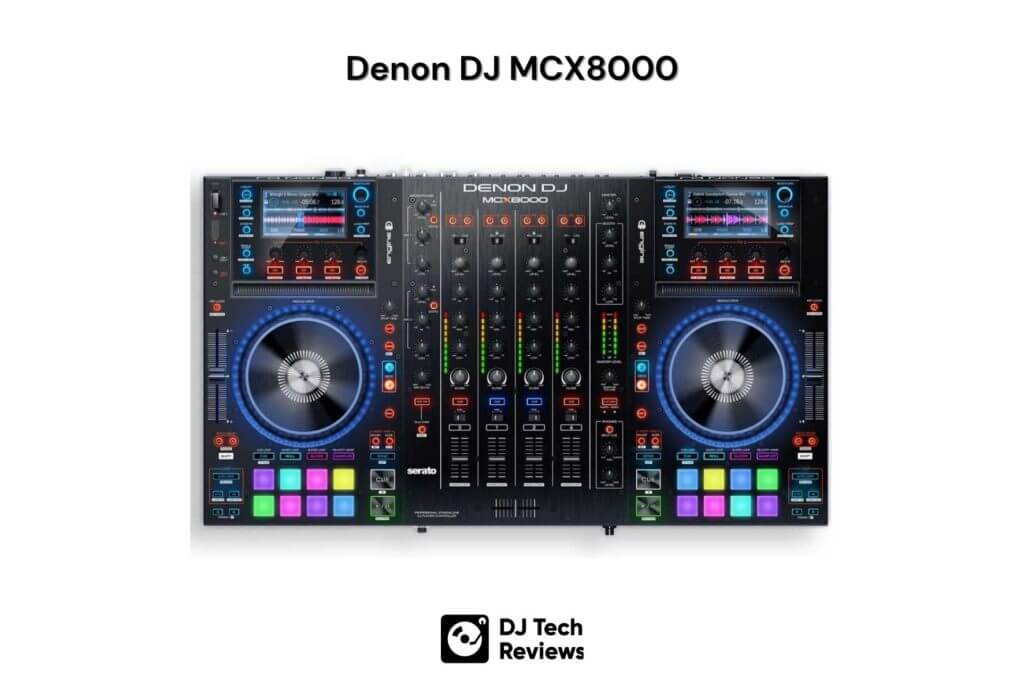
Cons
Requires A Laptop
I told you that we’d go over the other side to this aspect.
The fact of the matter is that, while DJ controllers do benefit from being tied to a laptop and their respective software, this is often making do with a poor situation as opposed to suffering the negative aspects of an otherwise positive one.
By being tied to a laptop, DJs are essentially forced to invest in two devices instead of just one. Not only will you need a quality controller, but if your current laptop isn’t up to snuff, you’ll only get bogged down. That means you’re going to need something quality for holding songs and running fast, likely shooting up your otherwise reasonable controller-based price point.
Platter Downsides
The second challenge that comes with controllers is that the platters are never going to be quite the same as what turntables have to offer. Yes, having them is great, but they are also going to be smaller than what vinyl records tend to be, as well as more difficult to use due to their lack of motorization.
All in all, if you’re a fan of scratching, a controller that isn’t dedicated to scratching will likely be a terrible fit for you and your needs.
Audio Interface Issues
Lastly, another issue that comes from being tied to a laptop computer is interface issues. Because sound has to essentially go from your computer to your controller, to whatever audio speaker you’re using, there can be some delays or slight overlapping you’ll have to contend with. This is particularly the case for scratching (another reason scratchers find another avenue outside of standard controllers).
CDJs vs DJ Controllers: Can a Verdict be Reached?
CDJs vs DJ controllers, just like the comparison between the turntable and the CDJ, it strongly depends on what you are looking for, as well as your ultimate skill level, when deciding which device works best for you. If you are someone that is just starting, the DJ controller has the most offered, is the cheapest priced, easiest to run around to play with, and least intimidating to learn while also having some very impressive upward potential. On the flip side, an experienced DJ can get a lot of benefit from a CDJ’s lack of reliance on a laptop or digital software and ability to more deeply connect with their audience.
Before deciding on what you want, you’ll need to know yourself, your skill level in DJing, and how much you want to reasonably spend. Understanding those things will help you decide which option is best for you and your goals.
RELATED ARTICLES:
DJ Controller vs DJ Mixer (All You Need To Know in 2022)
CDJs vs Turntables (Which DJ Setup is Actually Best?)



